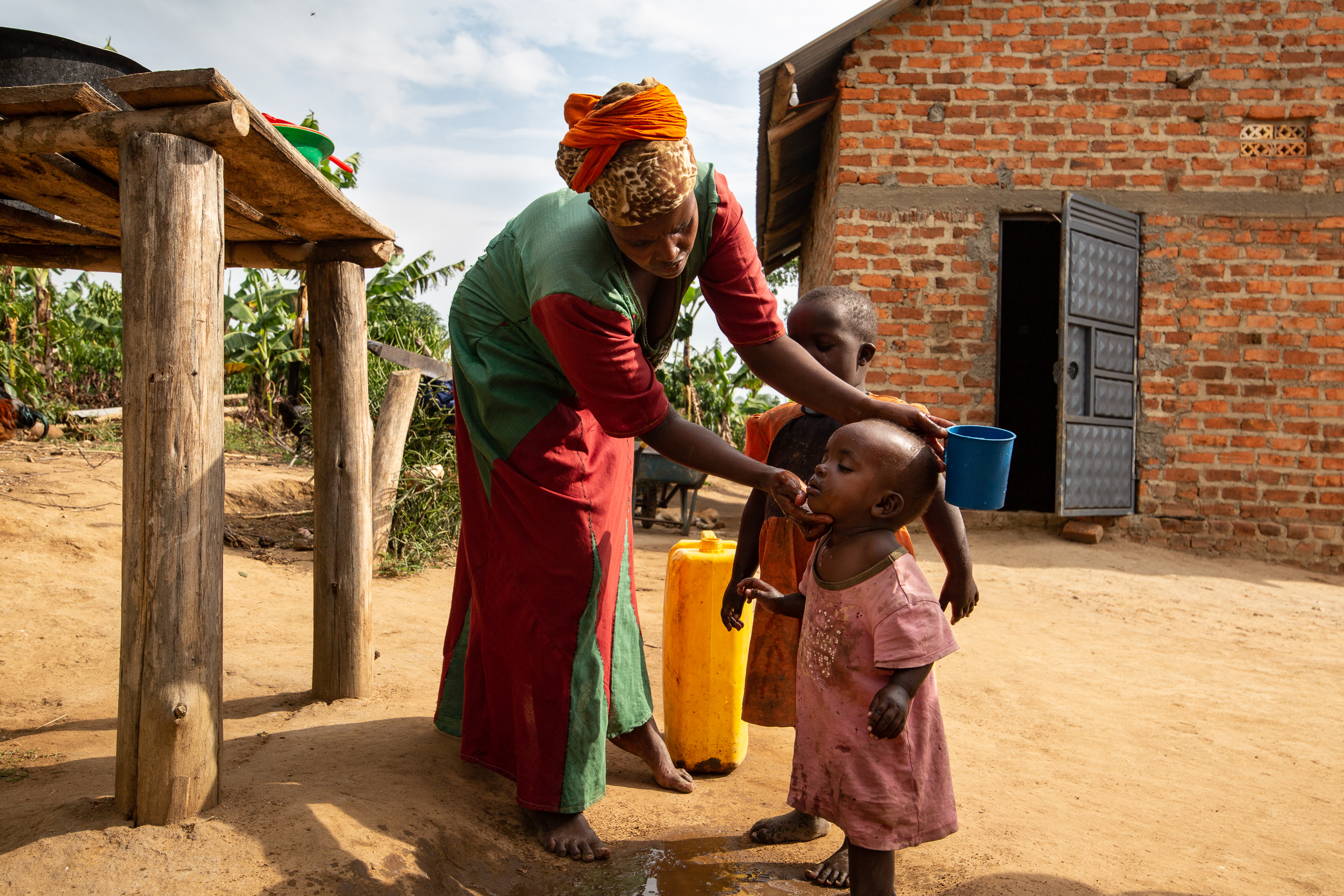Justine Nitele from Kalungu District in Uganda is a 36-year-old woman who developed obstetric fistula following the prolonged labor of her fifth child. This meant she was often in pain and couldn’t walk. She had no control of her bowels and couldn’t leave the house without padding. She lived with the condition for three years.
“I feared being among people. I felt disgusting and shameful,” she recalls.
Justine heard about the Fistula Care Plus program at Kitovu Hospital through a midwife at her local health center. On visiting Kitovu Hospital she learned that her condition could be reversed. So, she applied to have the repair treatment. That was in 2014.
When Justine left the hospital after recovering, her fistula was repaired. USAID gave her a startup package of four goats to help empower her and encourage her reintegration in her community.
“I am rearing the goats to cater for my family’s needs, like school fees,
clothes, medical care, and other things,” she says with pride.
In the five years since her repair, Justine had her seventh and final child under caesarian section and whilst doing so that opted for a permanent family planning method.
Justine has been welcomed back into her community and is discussing fistula and how to prevent it.
“At village meetings and church, I talk about the dangers of fistula.
Now I’m raising awareness, so those affected get help in the hospital.”
Since 2004, USAID has provided fistula services in sub-Saharan Africa and South Asia, enabling more than 50,000 fistula repair surgeries.
Client: USAID
Initiative: Fistula Plus Program
Partner: EngenderHealth
Location: Uganda
Subject: Justine Nitele
Project Manager: Lisa Stewart
Videography: Nyasha Kadandara
Photography: Carielle Doe
Editing: Tamsyn Reynolds
Sound Design: Matt James
Background: More than two million women in sub-Saharan Africa and Asia are estimated to be living with fistula. Fistula is often developed from a prolonged labor without adequate medical facilities. It can be an embarrassing medical condition, often leaving a woman with a hole between the birth canal and one or more of a woman’s internal organs, which results in leaking of a bodily fluid.
This often leads to women being abandoned or neglected but their husbands and families, as well as ostracized by their communities. The condition is almost entirely preventable, provided women and girls have access to timely and skilled medical care.
Through its fistula care projects, USAID provides support for the training of surgeons and nurses in improved surgical techniques and care practices. USAID’s programs also help promote prevention, family planning and social reintegration.
Brief: USAID contracted Namuh to produce one 3-4-minute-long film and 1-minute trailer about its fistula program in Uganda. The film would feature a survivor with a repaired fistula who is now a champion in her community. It would tell her story, from life with a fistula, through her repair, to her role as a community champion and everything that has changed in her world.
Challenges & Result: We employed a videographer and photographer who we haven’t worked with before. This meant significant briefing and training ahead of the shoot.
Working with client and their local partner, EngenderHealth, we identified Justine as our best candidate to be the subject of the film. We then worked together to determine a suitable production schedule.
Working with USAID’s new Storytelling Hub style, we produced a 3-minute-long film showcasing Justine and her story. Justine was a delight to work with and we found her strength and positivity inspiring.
We hope this film, which is set to feature at an USAID event on May 22, 2019, and be shared widely with both government and non-government audiences in the U.S. and Uganda, highlights fistula as a condition, and raises awareness for prevention and treatment.
The film was shared at a USAID event on May 23 2019, International Day to End Obstetric Fistula and on USAID’s ContentHub.








